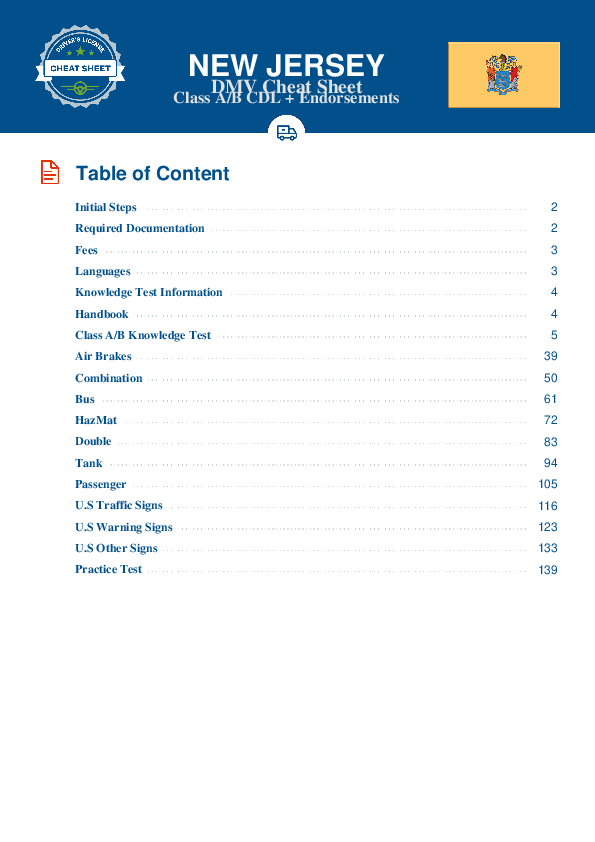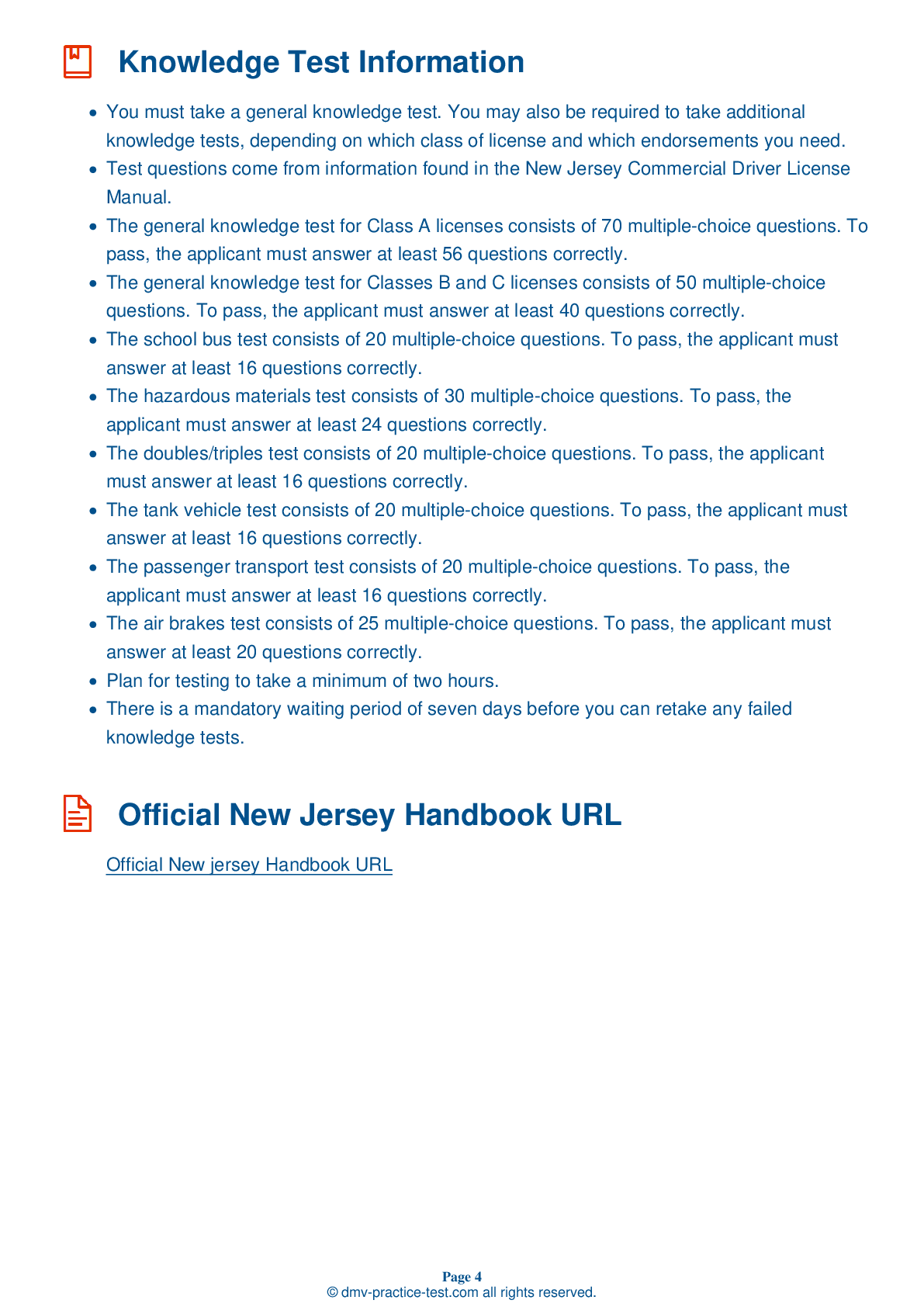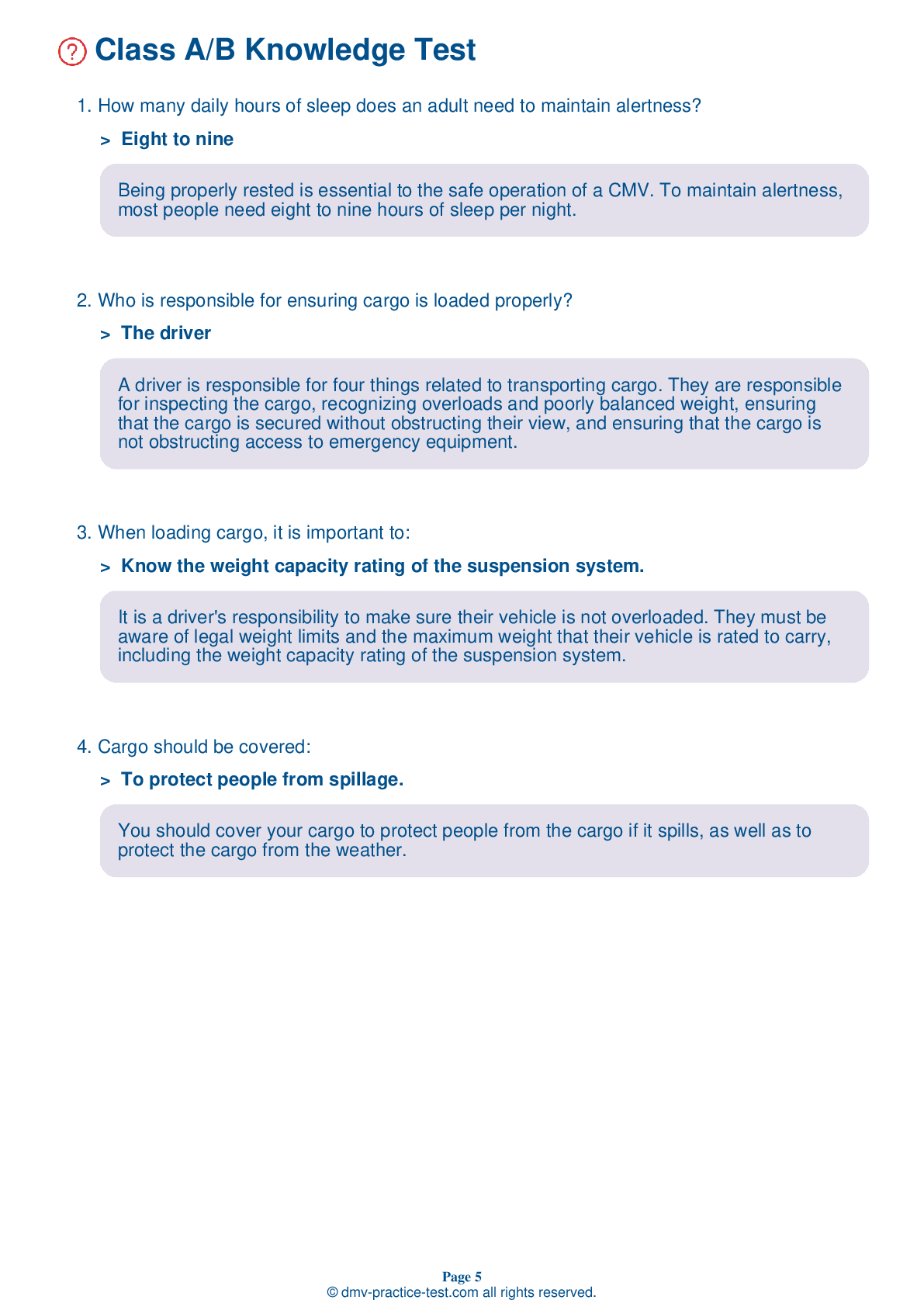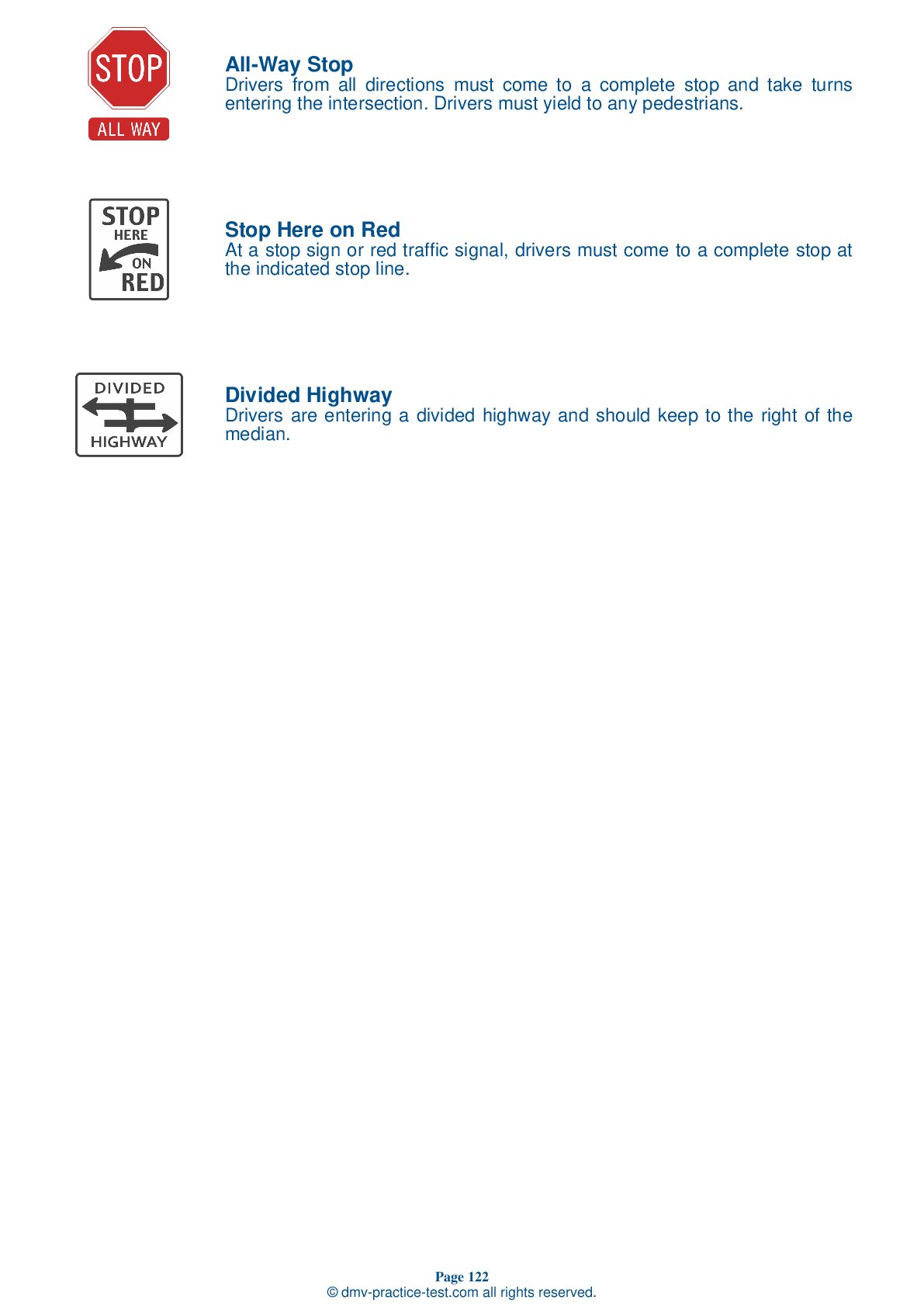Bus Driver Testing | New Jersey 2026 #1 Page 3 of 3
Train for FREE online with our NJ bus CDL test. The official exam test consists of several obligatory parts, with all of them checking your knowledge of different blocks of road rules. If you need to obtain a license in New Jersey in 2026, learn how to become a bus driver and then practice as much as possible. Free sample tests published on our website will help you check and improve your knowledge and boost your grades. Please bear in mind that DMV requirements for a bus driver may vary from state to state.
15 . When you are approaching a bus stop, the students on your bus should:
Students on a school bus should remain seated until they are told otherwise. It is unsafe for students to walk around the bus while it is moving.
16 . When checking the power steering fluid during a vehicle inspection, you will need to do each of the following, except:
When checking the power steering fluid during the vehicle inspection test, you must be able to indicate where the power steering fluid dipstick is located and show that there is an adequate amount of power steering fluid in the engine compartment. The fluid level must be above the refill mark.
17 . If a bus stalls on a railroad track, the driver should:
If a school bus becomes stalled or trapped on railroad tracks, the driver should immediately evacuate everyone from the bus. To best avoid flying debris from the bus being struck by a train, the students should be led far away from the bus at an angle that is in the direction of any oncoming train.
18 . When performing a pre-trip inspection, you should make sure that:
When checking your vehicle's pedals during a pre-trip inspection, you should ensure that there is nothing under or around the pedals that will obstruct their use. Make sure the pedals are in proper working condition and that the surfaces of the pedals are grooved, if applicable.
19 . When crossing railroad tracks, you should:
When crossing railroad tracks during the on-road driving skills test, you must not stop, switch gears, pass another vehicle, or change lanes while any part of your vehicle is in the crossing.
20 . When asked about the vehicle's oil during the vehicle inspection test, you must be able to do all of the following, except:
During the vehicle inspection test, you must be able to indicate where the oil dipstick is located; show that the oil level is within a safe operating range; and show that the oil level is above the refill mark.
See the exact questions that will be on the 2026 New Jersey DMV exam.
99.2% of people who use the cheat sheet pass the FIRST TIME
Lillian MCcranie explains how our CDL study guide was helpful in passing the exam and recommends it to everyone.
Cameron tells us how he purchased the CDL exam, and found it to be a useful tool which helped him pass the exam and find a job.



